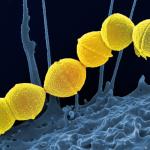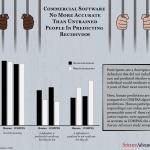Let the games begin.
Other Science News
When an infectious agent (viruses, primarily) transfer from an animal host to humans, it's referred to ask a spillover event. Most of the time, it occurs when there are close interactions between those two groups (ie.
One of the biggest problems of our hyperpartisan culture is that everything has been turned into a morbid game show.
It turns out you can explain the spread of rioting as well as fake news by understanding the spread of a communicable disease, such as the flu. Both actions and ideas spread like a virus; you need both an infectious idea and a receptive audience.
Three people walk into a bar. They all pick up a strain of Streptococcus. Person A has no symptoms. Person B is laid up for a week in bed with Strep throat. And, person C ends up in the ICU. How?
When I watched the questioning by CNN’s Dr. Sanjay Gupta of White House physician Rear Adm.
Much buzz has surrounded President Trump's "Fake News Awards." Given that part of our mission is debunking pseudoscience and bogus health claims, we felt obliged to offer our own Fake News Award ... for junk science.
President Donald Trump is fit for duty - medically, mentally, cognitively, psychologically, emotionally, physically and otherwise.
Predicting the future is not only the provenance of fortune tellers or media pundits. Predictive algorithms, based on extensive datasets and statistics have overtaken wholesale and retail operations as any online shopper knows.
With the focus in the last few weeks on President Trump’s first routine physical in office and the published description that Friday’s exam at Walter Reed National Military Medical Center went “exceptionally well,” the internet - in particular, tw












